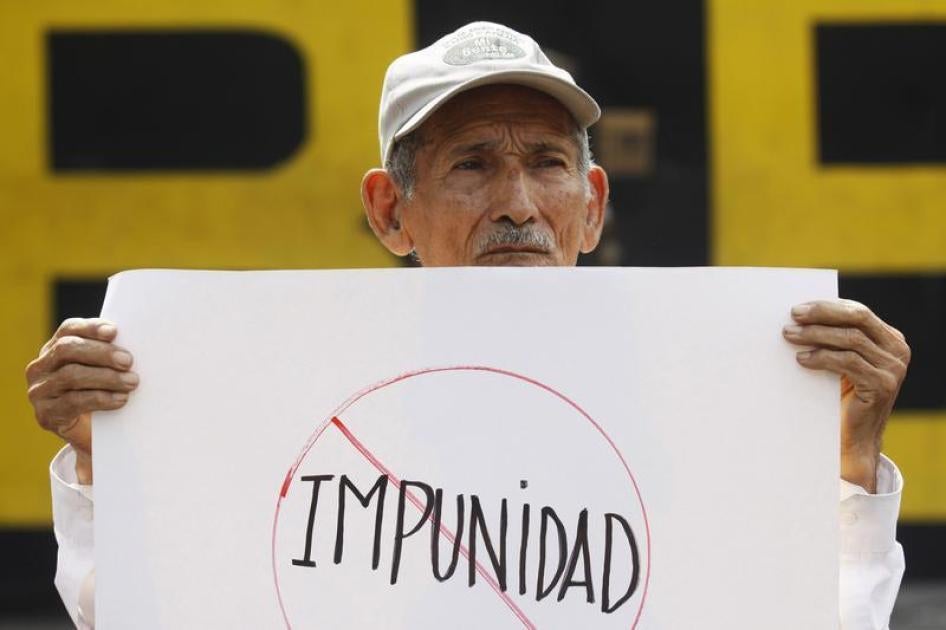On July 13, El Salvador’s Supreme Court overturned a 1993 amnesty law that prevented prosecutions of those responsible for grave human rights abuses committed during the country’s decade-long armed conflict. The court was courageous in upholding the right to justice of hundreds of victims of abuses committed by members of the Salvadoran army and guerrillas.
The court also reaffirmed a key message to rights abusers and opponents of justice in the region: Impunity will not stand. As in Argentina and Chile, abusers in El Salvador who long benefited from amnesties, could now find themselves facing prosecutions for crimes.
This decision should inspire authorities elsewhere in the Americas that still have amnesty laws in place, like Brazil, to strike them down. It should also serve as a warning to Colombian peace negotiators in Havana, who reached an agreement last December with the Revolutionary Armed Forces of Colombia (FARC) guerrillas that could allow those responsible for atrocities on both sides of that conflict to escape meaningful punishment.
As well as allowing confessed war criminals to avoid spending a day in prison, the Colombian agreement includes provisions that could provide de facto amnesties or open the door to full impunity for those responsible for serious crimes. For example, it includes a definition of “command responsibility” – a key principle of international humanitarian law – that could be used to allow army generals and FARC commanders to escape accountability for crimes committed by combatants under their control. Similarly, the Colombian government has announced that members of the armed forces who did not have a “major responsibility” in the “worst and most representative” crimes – two undefined categories – could face suspended sentences or have prosecutions waived altogether.
Colombian peace negotiators are aware they risk having the agreement overturned by courts. They have designed a “stability chamber” that could review and repeal any challenges to rulings under the agreement. They also plan to include the accord in an international agreement and the Colombian Constitution so as to shield it, under Colombian law, from future questioning.
However, the Salvadoran decision should remind Colombian peace negotiators – as well as other leaders in the region – that victims’ struggle for justice will, sooner or later, find a crack in any wall built against justice.









